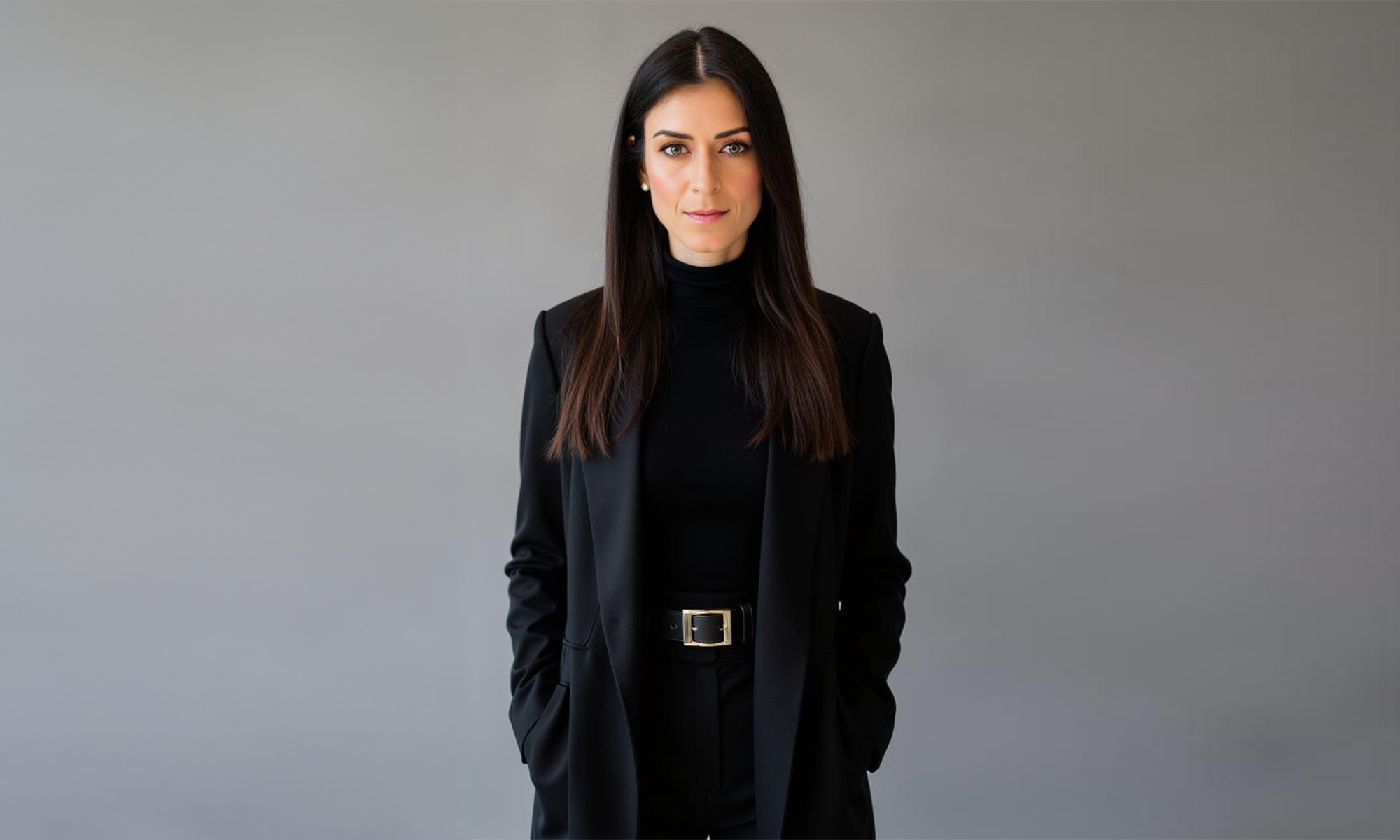News
Exclusive: Honoring A Trailblazer In Advanced Technologies
Celebrate International Women’s Day with an exclusive interview featuring Dr. Najwa Aaraj, a pioneer in advanced technologies and an inspiration for future generations.

As we celebrate International Women’s Day, we recognize the pioneering women driving innovation, security, and technological progress on a global scale. Among them is Dr. Najwa Aaraj, CEO of the Technology Innovation Institute (TII), a distinguished leader specializing in cybersecurity, autonomous systems, post-quantum cryptography, artificial intelligence (AI), and advanced technologies. She has been instrumental in advancing the UAE’s global leadership in critical technologies, shaping secure, scalable solutions that address modern and future challenges.
In this exclusive interview, Vernewell Group’s Malak Trabelsi Loeb, Founder of the Quantum Innovation Summit, speaks with Dr. Aaraj about her expertise, contributions to the quantum and cybersecurity ecosystem, and her vision for the future of these transformative fields. They discuss the intersection of quantum technology, cybersecurity, and AI, as well as the importance of fostering global collaboration, securing digital infrastructure for the quantum era, and paving the way for the next generation of women in STEM.
Dr. Aaraj’s leadership is a testament to the power of expertise, resilience, and innovation in breaking barriers. Her contributions are shaping the future of advanced technologies while inspiring women worldwide to lead in cutting-edge research and technological development.
As the conversation unfolds, it becomes clear that navigating the intersection of cybersecurity, post-quantum cryptography, and AI requires both technical expertise and strategic foresight. Dr. Aaraj reflects on what drew her to this field and how her journey has shaped her leadership at TII.
Leadership & Vision: The Inspiration Behind A Career At The Intersection Of Cybersecurity, AI, And Quantum Technology
Malak Trabelsi Loeb: Cybersecurity, post-quantum cryptography, and AI are at the core of today’s digital transformation. What inspired you to pursue a career at this intersection?
Dr. Najwa Aaraj: My background in applied cryptography and embedded security naturally led me to explore emerging challenges in cybersecurity, particularly as quantum computing advances. The ability of quantum technology to break classical cryptographic systems presents a paradigm shift, one that demands proactive solutions today. The potential of quantum computing, both as a revolutionary tool and a security risk, fascinated me early in my career. It became evident that cybersecurity and cryptography needed to evolve in parallel with quantum advancements to ensure long-term digital resilience. At TII, we are not only anticipating this transformation but actively shaping it. Our research in post-quantum cryptography, quantum-secure communication, and AI-driven security frameworks is ensuring that organizations and governments are prepared for the quantum era. The convergence of these fields is not just about security – it is about enabling a future where technology remains trusted, scalable, and resilient.
Malak Trabelsi Loeb: How has your leadership journey shaped your role as CEO of TII? What challenges have you overcome as a leader in these advanced fields?
Dr. Najwa Aaraj: Leading a research institute that spans multiple disciplines – ranging from artificial intelligence and advanced materials to cybersecurity and autonomous systems – requires a balance between scientific discovery and real-world impact. One of the biggest challenges in deep technology research is ensuring that groundbreaking innovations move beyond the lab and into practical applications that benefit industries, economies, and societies.
Scientific advancements often require significant infrastructure, long-term investment, and specialized expertise to reach a stage where they can be widely adopted. Unlike incremental technological improvements, breakthroughs in fields such as quantum computing, AI, biotechnology, and advanced energy solutions demand close collaboration between researchers, industry leaders, and policymakers.
As CEO of TII, my focus has been on bridging this gap by fostering global partnerships, building sovereign capabilities, and developing talent that can drive research toward implementation. Whether in secure communication, next-generation materials, or intelligent systems, our work is aimed at translating fundamental research into scalable solutions. This approach ensures that the UAE continues to play an active role in shaping the future of advanced technology and innovation.
Malak Trabelsi Loeb: How is the UAE leveraging quantum research to establish itself as a global leader in innovation?
Dr. Najwa Aaraj: The UAE has identified quantum computing, quantum communication, and post-quantum cryptography as important focus areas, recognizing their potential to transform industries such as finance, healthcare, and national security. With a long-term vision, the country is investing in quantum research, infrastructure, and talent development, ensuring it can both contribute to and benefit from the global advancements in this field.
These investments are helping to build local expertise and capabilities, from funding research and establishing specialized facilities to creating opportunities for scientists and engineers to explore new frontiers in quantum science. By bringing together academia, industry, and government, the UAE is working to accelerate innovation and develop real-world applications for quantum technology.
At TII, our researchers at the Quantum Research Center (QRC) are playing their part in this journey, exploring ways to advance quantum computing, cryptography, and secure communication. Whether it is developing new quantum algorithms or collaborating with global experts, QRC is focused on contributing to the broader goal of making quantum technology accessible and impactful in the years ahead.
Cybersecurity And Post-Quantum Cryptography
Malak Trabelsi Loeb: With the rapid advancement of quantum computing, how do you see the cybersecurity landscape evolving over the next decade?
Dr. Najwa Aaraj: Quantum computing represents one of the most significant shifts in cybersecurity history. The cryptographic protocols that protect banking transactions, government communications, and digital identities today will become vulnerable once quantum computers reach a certain level of computational power.
In response, global initiatives such as NIST’s Post-Quantum Cryptography standardization project are accelerating the development of quantum-resistant encryption. At TII, we have actively contributed to this effort by developing and testing cryptographic solutions that are resistant to quantum-based attacks. Our work includes hybrid cryptographic frameworks that integrate classical and post-quantum encryption, Quantum Key Distribution for ultra-secure communication, and new cryptographic algorithms designed to ensure long-term data protection against quantum adversaries.
Over the next decade, businesses and governments must prepare for a complete transition to quantum-safe security standards. The challenge is not only in developing these solutions but also ensuring that organizations migrate their infrastructure before quantum computers reach the threshold of breaking classical encryption.
Malak Trabelsi Loeb: How is TII contributing to post-quantum cryptography and secure quantum communication?
Dr. Najwa Aaraj: TII is actively advancing quantum-safe cybersecurity by developing post-quantum cryptographic solutions and quantum-resistant communication technologies. As mentioned, our work in post-quantum cryptographic algorithms has contributed to multiple NIST PQC proposals, supporting the development of practical implementations for industries preparing for quantum threats.
Additionally, we have implemented the first domestic Quantum Key Distribution (QKD) solution in the MENA region, providing a stronger security framework for sensitive communications. As quantum computing evolves, ensuring that digital infrastructure remains secure is a priority. By integrating AI-driven threat detection and hybrid encryption methods, we are working to help enterprises and government agencies transition to quantum-secure systems while maintaining operational resilience.
Interdisciplinary Innovation
Malak Trabelsi Loeb: How does quantum computing intersect with AI and cybersecurity to create breakthrough innovations?
Dr. Najwa Aaraj: Quantum computing is poised to enhance AI models, revolutionize cybersecurity, and unlock solutions to complex problems that classical computing struggles with. At TII, we see the intersection of quantum computing, AI, and cybersecurity as a key driver of future innovation. Quantum algorithms accelerate AI model training and optimization, particularly for complex datasets such as medical diagnostics or climate simulations. AI-powered quantum cryptanalysis is being used to develop encryption methods that can withstand quantum threats. Meanwhile, quantum-inspired AI models are helping optimize industrial processes, from logistics to drug discovery. By integrating these fields, we are creating more efficient, secure, and intelligent computing systems that can handle the scale and complexity of tomorrow’s digital landscape.
Malak Trabelsi Loeb: Can you highlight a recent quantum research initiative at TII that showcases collaboration across multiple disciplines?
Dr. Najwa Aaraj: One of our most exciting initiatives is our quantum-inspired fluid dynamics simulation framework, developed in collaboration with our Propulsion and Space Research Center. This project applies quantum algorithms to simulate airflow and fluid behavior, reducing computational resource requirements and accelerating design cycles for aircraft and automotive design, nuclear energy systems, and climate modeling. This innovation was recognized in the Airbus-BMW Quantum Mobility Challenge, underscoring its potential to transform multiple industries.
Vision For The UAE And Global Impact
Malak Trabelsi Loeb: What strategic quantum research initiatives at TII are positioning the UAE as a key player in the quantum ecosystem?
Dr. Najwa Aaraj: TII has launched several strategic initiatives that are advancing the UAE’s role in quantum technology. A major milestone has been the development of the first superconducting qubit in the MENA region, laying the groundwork for regional quantum computing capabilities. We have also introduced Qibo, a global open-source quantum programming platform that empowers researchers worldwide to explore and develop quantum applications. In January, we hosted the first Quantum Technology Symposium in Abu Dhabi, bringing together leading experts to exchange knowledge and drive collaboration at the start of the International Year of Quantum Science and Technology – an event whose opening ceremony I was honored to attend in Paris earlier this month.
Malak Trabelsi Loeb: How critical are global partnerships in accelerating quantum technology development and adoption?
Dr. Najwa Aaraj: Quantum research – like every other technology – thrives on global collaboration. At TII, we actively partner with leading institutions such as Google AI Quantum, the University of Maryland, and Freie Universität Berlin to push quantum advancements forward. These collaborations accelerate innovation, expand research capabilities, and drive real-world quantum applications. As quantum computing progresses, fostering strong global partnerships will be essential to unlocking its full potential and ensuring that these technologies benefit society on a larger scale.
Conclusion
As our conversation comes to a close, it is evident that Dr. Najwa Aaraj’s leadership and expertise are playing a critical role in shaping the future of cybersecurity, quantum technology, and AI. Her work at the Technology Innovation Institute (TII) is not only advancing cutting-edge research but also ensuring that these innovations translate into practical, secure, and scalable solutions that benefit industries and societies.
On this International Women’s Day, we celebrate the contributions of women in STEM who are breaking barriers, driving technological advancements, and inspiring the next generation of leaders. Dr. Aaraj stands as a testament to the power of expertise, resilience, and strategic vision in navigating complex challenges and redefining the digital landscape.
As highlighted in this discussion with Malak Trabelsi Loeb, the intersection of quantum computing, cybersecurity, and AI presents both challenges and opportunities, requiring collaborative efforts, strategic investments, and a commitment to global innovation. The UAE, through initiatives led by TII, is positioning itself as a leader in quantum security and next-generation technologies, ensuring that the digital future remains secure and forward-thinking.
This interview serves as a reminder of the essential role women play in shaping the future of technology. Their leadership, expertise, and contributions continue to drive progress, innovation, and security in a rapidly evolving world. As we honor these achievements, let this be a call to action to support, mentor, and empower more women in STEM, ensuring a future where diversity fuels technological breakthroughs and sustainable innovation.
News
Checkout.com Set To Launch Card Issuing In The UAE
The payment service provider’s expansion is a first-of-its-kind investment and could reshape digital transactions across the region.

Checkout.com is laying the groundwork to become the first global payments platform to introduce card issuing in the United Arab Emirates — a move that could reshape how businesses in the region manage financial transactions.
The company plans to roll out its domestic card issuance offering in the UAE by 2026, subject to regulatory approval. The launch would give businesses the tools to issue both physical and virtual branded cards. This, in turn, opens up new ways to reward customers, streamline expense processes, and handle B2B payouts efficiently.
Checkout.com’s CEO and Founder, Guillaume Pousaz, revealed the plans during Thrive Abu Dhabi, the firm’s debut conference in the Emirates. Joined on stage by Remo Giovanni Abbondandolo, General Manager for MENA, Pousaz presented to an audience of over 150 partners and merchants at Saadiyat Island. Also in attendance was H.E. Omar Sultan Al Olama, the UAE’s Minister of State for Artificial Intelligence, Digital Economy, and Remote Work Applications.

Abbondandolo highlighted the strategic importance of the announcement: “As a global business, we focus on bringing products to markets that our customers want and need. Today’s announcement is proof of our commitment to the MENA region and its rising influence in the digital economy. The appetite for innovation here is real, and we’re proud to be building the infrastructure that powers it”.
One early adopter of Checkout.com’s UAE acquiring services is Headout, a travel experiences marketplace, which recently named the payment provider as its main partner in Europe. The company has already begun card issuing there and is keen to expand that offering into MENA once approval is granted.
The expansion of services in the UAE and beyond builds on Checkout.com’s track record in the region. It was the first global payments firm to secure a Retail Payment Services license from the UAE’s Central Bank and was instrumental in rolling out Mada and Apple Pay in both the UAE and Saudi Arabia.
Also Read: Protecting Your WhatsApp Account From Hackers: Kaspersky Expert Tips
The firm has also been rolling out new products: One of the latest is Flow Remember Me, currently in beta testing. It allows shoppers to store their card information once and access it across Checkout.com’s entire network, potentially cutting checkout times by up to 70%.
Earlier this year, Checkout.com also introduced Visa Direct’s Push-to-Card solution in the UAE, enabling both domestic and international payouts. Its collaboration with Mastercard has grown as well, making it easier for businesses to send funds directly to third-party cards securely and quickly.
With regional tech ambitions on the rise — spurred by initiatives like Saudi Arabia’s Vision 2030 and the UAE’s 2031 Agenda — Checkout.com sees its role as one of a key enabler. “Our mission is to help ambitious businesses navigate the complexity of payments, so they can move faster, go further, and make the most of every opportunity,” said Abbondandolo. “In MENA, performance is personal. It’s local. It’s built on trust. And when payments perform, businesses thrive”.
























